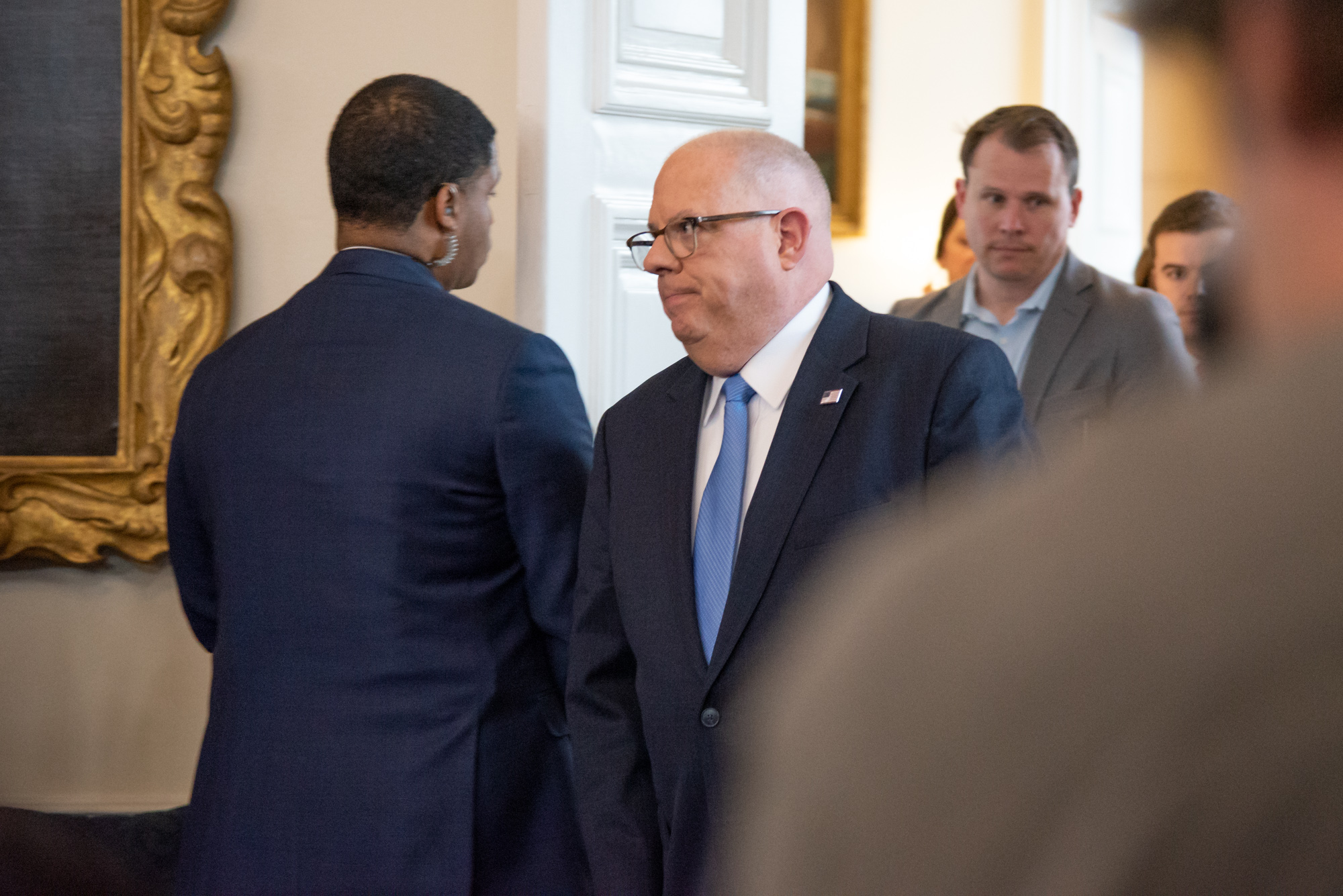Maryland Gov. Larry Hogan announced the state’s initial plans regarding the distribution of the COVID-19 vaccine at a press conference Tuesday afternoon.
The Maryland Department of Health has issued an order that expands the scope of practice for licensed providers, meaning that with proper training all health care professionals — including nurses, paramedics and pharmacists — will be able to administer the vaccine, Hogan said.
“A vaccine is on the way,” Hogan said. “But it is absolutely critical that we continue to fight this virus with everything we got.”
Although Maryland remains one of the top states in terms of positivity rates and mask-wearing, last Friday yielded a record-high 3,792 new coronavirus cases in a day. Tuesday was the first day since May 22 that the state reported more than 50 deaths, Hogan said.
Nearly 40 Maryland companies have been involved in the vaccine response, and researchers at University of Maryland Medical Center were first in the country to test the Pfizer vaccine, he added. In November, the state committed $10 million to acquire a “strategic stockpile” of syringes and other supplies for vaccine rollout.
“This is by far the most massive undertaking of this pandemic,” Hogan said.
Jinlene Chan, deputy secretary of the state health department, explained that Maryland is set to receive 155,000 initial doses –– about 50,000 from Pfizer and 104,000 from Moderna — of the vaccine. Both vaccines require two doses for maximum efficacy.
Pfizer is expected to be approved first, and if it is, the state anticipates the initial doses will be available for Maryland as early as the week of Dec. 14, Chan said. If Moderna is approved, the state believes it will be able to receive the vaccine in the week of Dec. 22, she added.
[Maryland shatters COVID-19 daily record with nearly 3,800 new cases statewide]
The initial doses will be divided among groups that have the highest risk in the state, including hospital-based health care workers and nursing home residents and staff, Chan said.
“Ultimately our goal in Maryland is to make sure that COVID-19 vaccine is available for every Marylander who wishes to have it,” she said.
A system will be released in the coming weeks for people to pre-register for an appointment to receive the vaccine, Chan said.
Bryan Mroz, assistant state health secretary, spoke about people’s hesitance to get the vaccine and misinformation circulating in the public, touching on future community outreach efforts to get people on board. Hogan has said that he will receive the vaccine in public.
Mroz said that while he and other officials will be transparent, Marylanders should also make sure they’re getting updates from trusted sources and combating false information.
“We will communicate what we know and what we don’t know,” Mroz said. “We feel that the best way to build confidence is open communication.”
Chan said that the concerns about the vaccine she’s heard most from the public center on possible side effects and the continued need to wear masks and socially distance even after they’ve been vaccinated.
Chan emphasized that many of the side effects experienced by people who have received the vaccine were expected based on how the body would respond to any vaccine. Vaccinated Marylanders are expected to continue wearing masks and socially distancing to protect unvaccinated people, she added.
Hogan expressed confidence in the safety of the vaccine.
“I’ve had conversations with all of the leaders in the coronavirus task force,” Hogan said. “Everyone involved believes it is safe and very effective, more effective than almost any other vaccine in history.”



